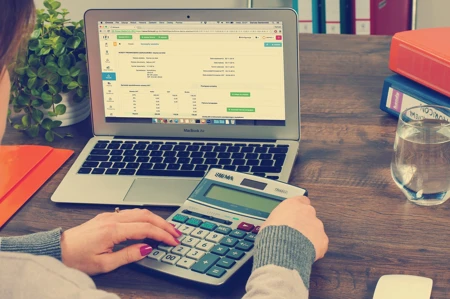Getting a mortgage is a significant milestone in the journey to homeownership, but for self-employed individuals, this path can come with its own unique set of obstacles.
A significant factor that influences a self-employed person's ability to obtain a mortgage is their borrowing power - essentially, a measure of how much money a lender is willing to offer you. Fortunately, there are a number of different ways that you can influence your borrowing power, boosting your chances of getting a mortgage.
Deposit size matters
When it comes to getting a mortgage, the size of your deposit plays a crucial role, regardless of whether you're self-employed or not. Your deposit is a reflection of your financial stability and commitment to the property purchase, and the larger your deposit, the less your application is deemed as a risk in the eyes of a lender.
A larger deposit can have a significant positive impact on your borrowing power, offsetting some of the risks associated with the potential irregularity of a self-employed income. Therefore, if you’re able to provide more than the average 20% deposit, you’re likely to improve your chances of getting your mortgage application approved.
Affordability and self-employed mortgage applications
Affordability is a key component of borrowing power, as lenders need assurance that your income and outgoings will enable you to comfortably repay your mortgage each month. However, due to the potentially fluctuating nature of self-employed income, you will need to provide additional evidence in order to demonstrate that you can afford your monthly mortgage repayments.
Unlike salaried employees, self-employed income can be irregular and may fluctuate from year to year. More traditional lenders tend to base their decisions on a history of steady income, which is why they view self-employed individuals as more of a risk to loan to.
In such cases, you’ll need to provide additional evidence in the form of your SA302, so that lenders can have a more in-depth analysis of your incomings and outgoings. This evidences your declared earnings, and will give you a good indication of how well you can meet your monthly mortgage repayments.
Getting a self-employed mortgage
Working with brokers who specialise in self-employed mortgage applications is essential, as they will be familiar with lenders that are more likely to consider a broader range of factors when determining your borrowing power.
While securing a mortgage as a self-employed individual may seem like it’s more complicated, you shouldn’t let this stand in your way - it’s simply a case of submitting a different type of evidence to prove your income. Whereas a full-time employed individual would submit three months’ worth of payslips, someone who is self-employed will need to submit your SA302 to demonstrate your earnings.
Regardless of your employment status, when it comes to getting a mortgage, the key is to be well-prepared, keep accurate financial records, and work with a mortgage adviser who can tailor your application to lenders that understand your financial situation. By taking these steps, you’ll be in the best possible place to boost your borrowing power more effectively and achieve your goals of homeownership.
If you’re looking to make a self-employed mortgage application, make sure to speak to our team of expert advisers today for a free, no-obligation chat. They will gather information about your financial situation, and work with you to assess which is the best lender to meet your individual requirements.
Important information
Your home may be repossessed if you do not keep up repayments on your mortgage.
There may be a fee for mortgage advice. The actual amount you pay will depend on your circumstances. The fee is up to 1% but a typical fee is 0.3% of the amount borrowed.




